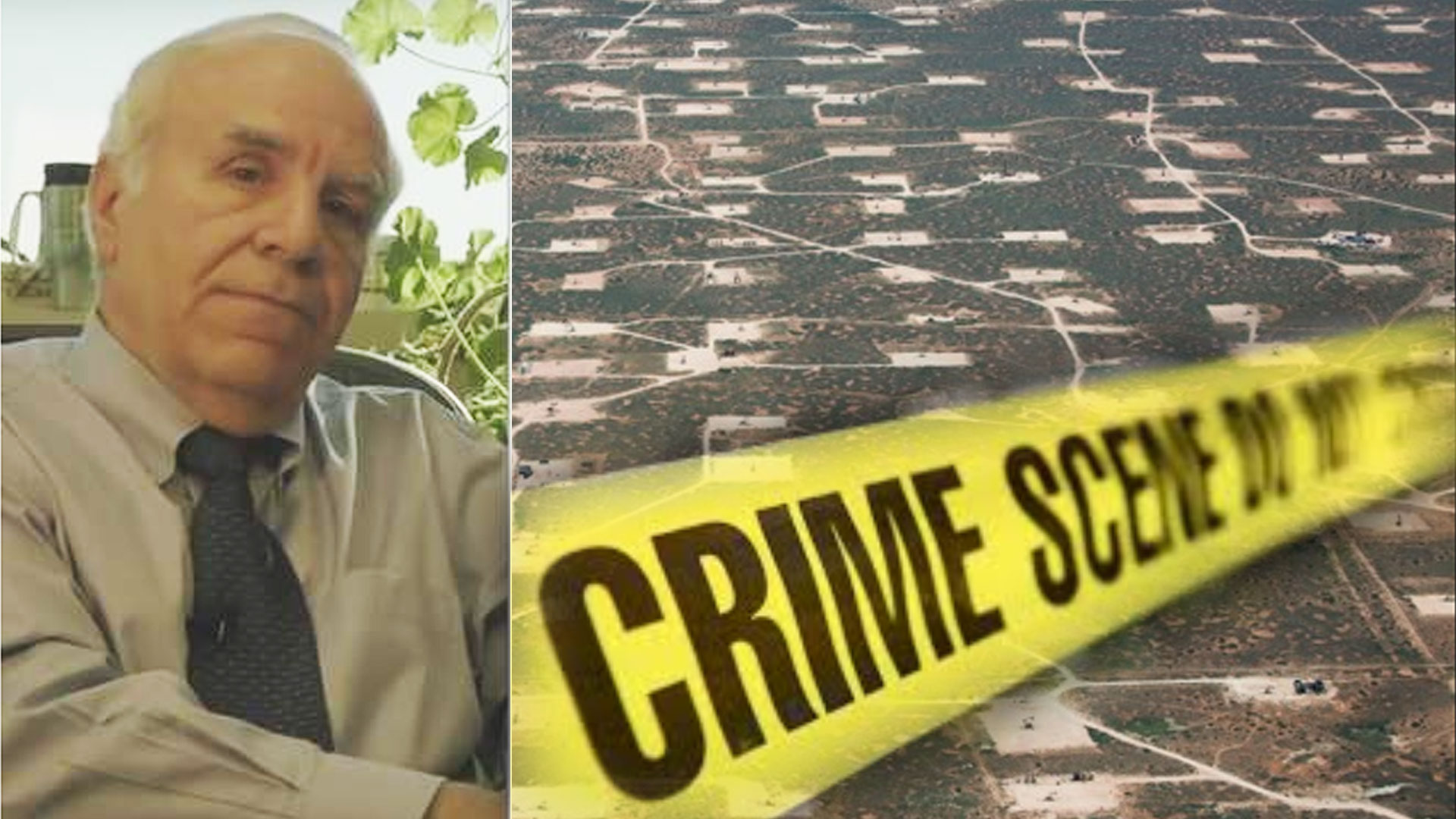In Just 10-15 Years World May Hit 2 Degrees of Warming
Leaking methane from the shale gas fracking boom.
Back in 2011, a Cornell University research team first made the groundbreaking discovery that leaking methane from the shale gas
fracking boom could make burning fracked gas worse for the climate than coal.
- Why a half-degree temperature rise is a big deal https://climate.nasa.gov/news/2458/why-a-half-degree-temperature-rise-is-a-big-deal
- Paris 1.5-2°C target far from safe, say world-leading scientists http://www.climatecodered.org/2017/07/paris-15-2c-target-far-from-safe-say.html
Transcript
In Just 10-15 Years World May Hit 2 Degrees of Warming, according to Cornell Scientist
Based on a post by Sharon Kelly from Desmog.
Back in 2011, a Cornell University research team first made the groundbreaking discovery that leaking methane from the shale gas
fracking boom could make burning fracked gas worse for the climate than coal.
Now a member of that team, Dr. Anthony Ingraffea, Professor of Engineering Emeritus at Cornell University,
outlines more precisely the role U.S. fracking is playing in changing the world’s climate.
The most recent climate data suggests that the world is on track to cross the two degrees of warming threshold set in the Paris accord
in just 10 to 15 years, according to Ingraffea.
That’s if American energy policy follows the track predicted by the U.S. Energy Information Administration,
which expects 1 million natural gas wells will be producing gas in the U.S. in 2050, up from roughly 100,000 today.
An average global temperature increase of 2° Celsius (3.6° Fahrenheit) will bring catastrophic changes —
even compared against a change of 1.5° C (2.7° F).
“Heat waves would last around a third longer, rain storms would be about a third more intense, the increase in sea level would be
higher and the percentage of tropical coral reefs at risk of severe degradation would be much greater,”
with just that half-degree difference, NASA’s Jet Propulsion Laboratory explained in a 2016 post about climate change.
That extra increase in temperature makes things much more dire. At 1.5 C, tropical coral reefs, the rainforests of the sea’s,
stand a chance of adapting and reversing a portion of their die-off in the last half of the century.
But at 2 C, the chance of recovery vanishes. Tropical corals are virtually wiped out by the year 2100.
On a global scale, production of wheat and soy is forecast to increase with a 1.5 C temperature rise,
partly because warming is favorable for farming in higher latitudes and partly because the added carbon dioxide in the atmosphere,
which is largely responsible for the temperature increase, is thought to have a fertilization effect.
However, at 2 C, that advantage plummets by 700 percent for soy and disappears entirely for wheat.
A draft report from the Intergovernmental Panel on Climate Change (IPCC), was leaked in January, concludes that it’s “extremely unlikely”
that the world will keep to a 1.5° change, estimating that the world will cross that threshold in roughly 20 years,
somewhat slower than Ingraffea’s conclusion.
In the late 1990s and early 2000s, U.S. natural gas production was flat or falling. Today, instead, the shale gas rush,
propelled by hydraulic fracturing (fracking), sweeps across the U.S., with drillers snapping up land to drill for previously
inaccessible fossil fuels locked in geologic formations of shale rock from coast to coast.
While the shale gas industry promised benefits like jobs and American energy security, Ingraffea notes, those benefits would have been almost
exclusively aimed at just 5 percent of the world’s population, North Americans.
But the harms will affect the remaining 95 percent of the world as well.
The climate is changing faster and more dramatically than it might have otherwise, and — far from serving as a bridge fuel —
fracking huge amounts of natural gas has already played a significant role in pushing the world toward a vastly more difficult future.
